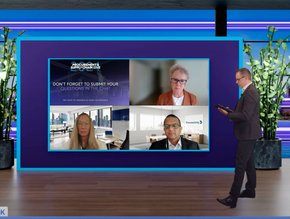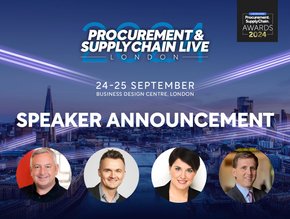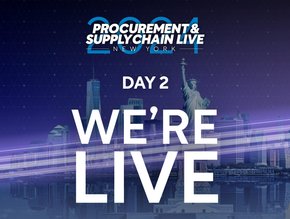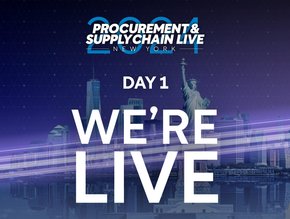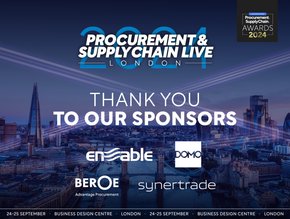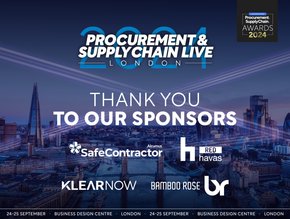Executive profile: Nico Ros of green-pharma firm, SkyCell

Nico Ros is CTO and Co-founder of SkyCell, a sustainable shipping solution for the pharmaceutical industry.
What's your professional background
I started my career at ZPF Ingenieure AG, an engineering company based in Basel, Switzerland. I’m still a co-owner and partner at the firm, which is responsible for the construction of many pharma production sites and has developed structurally and aesthetically challenging construction projects across Switzerland, collaborating with renowned architects like Herzog & de Meuron.
Pursuing my second passion for business and management, I completed additional studies at the University of Fribourg. Here I met my co-founder Richard Ettl, SkyCell’s CEO.
We saw a major opportunity to bring innovation into the pharma supply chain space. With 10 years of experience as an engineer, Richard and I created a new type of container - the hybrid - from there SkyCell was born.
What does SkyCell do?
SkyCell is a purpose-led technology company that’s transforming the pharmaceutical supply chain through a combination of proprietary software, hardware, and big data.
Our vision is to have zero loss in the pharma supply chain worldwide. We're the leading manufacturer of hybrid temperature-controlled door-to-door container solutions. These solutions allow pharma companies to optimise their supply chain by reducing, and even predicting, the risks associated with delivering temperature-sensitive pharmaceuticals.
SkyCell has been combining hybrid containers and IoT software since 2012, taking innovation to the next level with SkyCell Secure. With the Secure software platform, we provide a supply chain operating system that enables pharma companies to have real-time, end-to-end oversight of every shipment around the world.
It streamlines workflows; from risk analysis to shipment monitoring, to a faster product release. With its automated approval capability, Secure reduces quality approval time from an average of 14 days to just hours, getting life-changing drugs to consumers faster. The backbone of Secure is the combination of simulation data with operational data.
The company has been built with sustainability as a core principle and is operationally net-zero today. Moving forward, SkyCell has committed to becoming end-to-end net zero by 2040.
Why is the pharma supply chain so carbon heavy?
Overall, the global healthcare industry emits two gigatons of CO2 emissions annually, which on its own would make it the fifth largest emissions contributor in the world. A large share of these emissions is a result of the energy-intensive nature of transporting temperature-sensitive pharmaceuticals.
These inefficiencies are caused by the fact that about 70-90% of these goods are still transported in single-use packaging: in essence, cardboard and styrofoam boxes with cold bricks. There is also significant wastage because of these containers. When using legacy containers, on average anywhere from 4% to 12% of products are compromised in transit. When you consider biologics can be worth up to $10 million per pallet, this creates an expensive dilemma and a big sustainability challenge.
Approximately $35 billion is lost each year through inefficiencies in the global pharma supply chain. Not only does this negatively impact the bottom line for many pharmaceutical companies, but it also creates environmental damage and unnecessary CO2 emissions.
For example, a typical intercontinental transport of one pallet of medication, including packaging, emits between six and 14 tons of CO2, so a pharmaceutical company producing around 100,000 of these pallets emits about one million tons of CO2 through the transport of their products alone. These emissions are the equivalent of the energy used by 125,000 homes in the US in a single year.
How does SkyCell's solution help?
The most significant source of CO2 emissions in supply chain is aircraft, so reducing the number of planes required to handle shipments is the most effective solution.
Our hybrid containers are highly efficient and have enabled some shipments to reduce their emissions by up to 50% compared to active and passive pharma containers.
These benefits are supported by our Secure software, which provides real-time visibility of shipments, allowing our customers to have peace of mind from door to door.
How is pharma greening supply chains?
The greening of the supply chain is key to the pharmaceutical industry addressing its sustainability challenge. Businesses are conscious of this and are under increasing pressure - whether it be from regulators or customers - to operate in a more sustainable way. You can already see this with the likes of AstraZeneca and GSK launching sustainable procurement programs.
The adoption of more sustainable modes of transportation will also be critical - it's encouraging to see the increasing commercial use of electric vehicles, greener fuels and hybrid containers.
From here, it's possible to see a route towards a significantly more sustainable supply chain in the near future, if companies fully embrace these innovative solutions.
When it comes to preventing losses and optimising supply chains, digital visibility is a big part of the solution - the more we can know, the better equipped we are to be efficient, and ultimately sustainable.
Best advice ever received?
A saying that has always resonated with me is “when life gives you lemons, make lemonade”.
I think it not only helps you to make the most out of any situation but it also encourages you to look on the positive side. Where there are challenges there are also opportunities – this is the entrepreneurial way of thinking. A positive mindset leads to a happy life.
- Building a Strong Global Supply Chain for Business SuccessDigital Supply Chain
- Transforming Sustainability T-Mobile's Strategic Initiatives
- T2 on Supplying Quality tea, Whatever the ChallengesSupply Chain Risk Management
- Identify & Address Forced Labour Compliance Risks With AIAGSustainability

